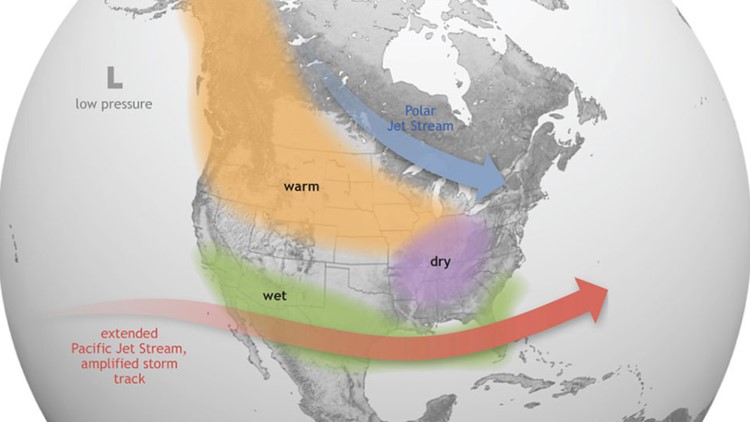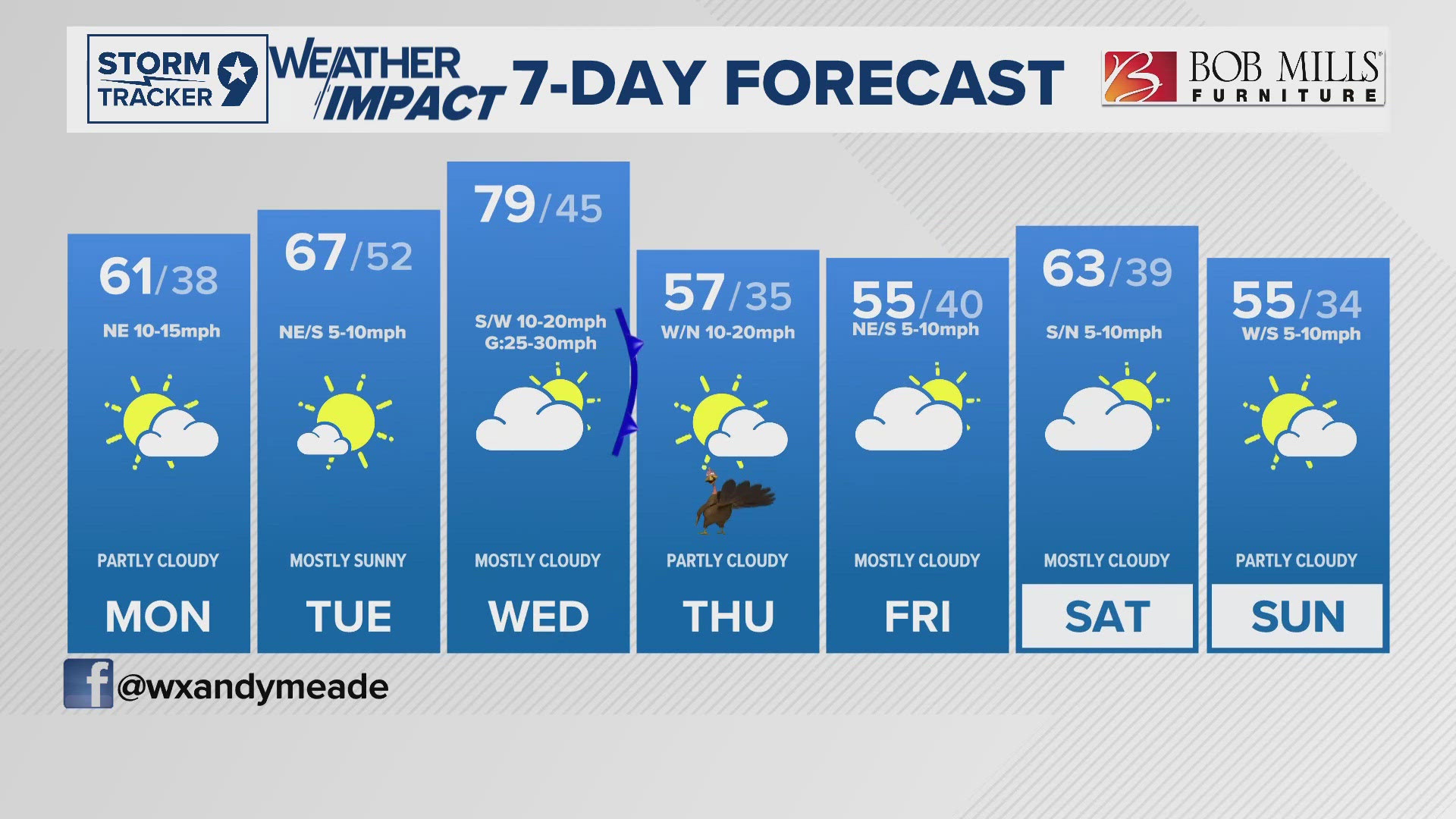ODESSA, Texas — The last year and a half has been dry here in West Texas, and the Pacific Ocean may be to blame.
That's right, ENSO short for El Niño Southern Oscillation is a major oceanic event that is proven to have a correlation with our weather.
The National Oceanic and Atmospheric Administration classifies an El Niño as when the equatorial waters have a positive, or warmer, average temperature anomaly of 0.5 degrees C or greater over the past three months for five consecutive months. The threshold for La Niña is the same, except that surface waters need to be 0.5 degrees cooler than average.
The past 4 years have been either neutral ENSO years or they have been La Niña years. With these conditions, the southern United States often experiences warmer and drier winters, which is exactly what we saw this past winter.
El Niño years often bring colder winters with more precipitation, often frozen, to West Texas.
Although the correlation isn't perfect, if you go back through history you will often find that some of our most mild and dry winters occurred in La Niña, and some of our coldest and wettest winters occurred in El Niño.
For example, the 2011 drought, which was one of the worst in Texas history, occurred during a long stretch of strong La Niña.
We're going through a similar stretch of La Niña right now, but it looks like it is about to end. Climate scientists have been monitoring warmer than average waters just below the surface that are expected to rise.
This will likely end with us meeting the El Niño criteria. In fact, there's a 90% chance that we see El Niño develop by fall. If it doesn't, that would make five straight years without an El Niño, making the longest La Niña/Neutral stretch. It should be noted, records started in 1950.
So, with El Niño looking promising, West Texas can anticipate a cooler and wetter winter for 2023-24.
There are multiple factors that contribute to our weather, so there's by no means a guarantee of this happening, but according to our past, we shouldn't be surprised to see our drought end by this time next year.



